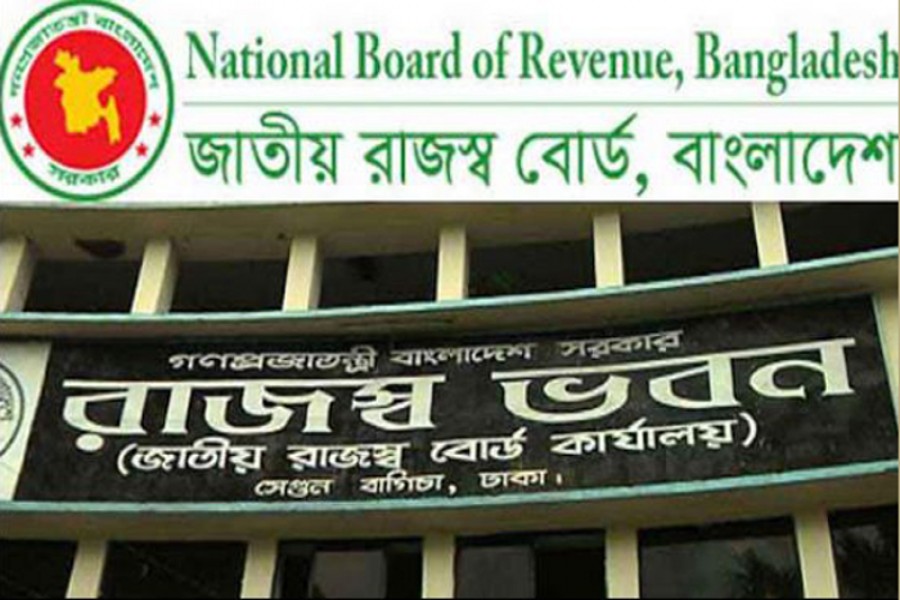
Published :
Updated :

Customs measures are going through massive changes following sudden backtracking of the government on enforcement of the new VAT and SD law amid topsy-turvy in its fiscal plans.
As both the customs and VAT laws have some interrelated measures, the customs department has to make major changes to Statutory Regulatory Orders (SRO) and bring other legal amendments.
SROs on the changes in customs measures were published Saturday in a bundle in the process of redoing the revenue-collection plans.
While placing the budget in parliament on June1, 2017, the finance minister had proposed to restructure Supplementary Duty (SD) by reducing it to eight tiers from an 11-tier structure.
As per the Provisional Collection of Taxes Act 1913 (ACT No XVI of 1931), all of the customs measures, including restructured SD rates, came into effect from the day of budget proposal.
Importers of the products that are under different slabs of SD had paid the higher amounts as per restructured rates from June 01, 2017 until
the placing of the amended Finance Bill 2017 on June 28 amid topsy-turvy in the fiscal plans.
SD slabs will continue in FY 2017-18 like in the just-concluded fiscal year on import of products under 10, 20, 30, 45, 60, 100, 150, 200, 250, 350 and 500 slabs.
In the proposed budget, the duty was restructured by reducing the slabs to 25, 50, 100, 150, 200, 250, 350 and 500.
The lowest slab of SD on imports was 25 per cent.
Businesses are worried about how to adjust the additional amounts of SD that they had paid in the entire month of June on imports.
Restructuring the slabs of SD was expected to generate an additional Tk 6.0 billion to the public exchequer as per estimation of the National Board of Revenue (NBR).
Following the new VAT and SD law, the customs wing had scrapped the specific duty on different products and imposed RD on those.
The NBR's customs wing has kept the specific duty unchanged as in the just-past financial year due to continuation of the existing VAT Act 1991, with the new law shelved amid protests by businesses and other stakeholders.
Some other measures, including increased import duty on mobile handset, and duties and depreciation facility on reconditioned cars, remained unaltered.
A projection paper of the NBR also estimated Tk 3.50 billion worth of additional revenue from import of finished mobile handsets.
The government increased the import duty on mobile phone to 10 per cent from 5.0 per cent for FY 2017-18.
The NBR also imposed 3.0 per cent Regulatory Duty (RD) on import of the products that pay the highest Customs Duty (CD) at 25 per cent.
It also estimates an additional Tk 200 million from import of Casava and other types of starch due to a threefold increase in CD to 15 per cent from 5.0 per cent. The CD has been increased for protecting the interests of local farmers and checking false declaration.
For local manufactures of different types of oilcakes, the NBR imposed the CD at 5.0 per cent, from zero, in the budget. The customs wing estimated around Tk 150 million in additional revenue from this product.
Officials said the customs wing reduced and increased CD on a number of products for protecting the local industries.
However, the five-tier duty slab, 1.0, 5.0, 10, 15, and 25 remained unchanged for the upcoming FY.
Local assemblers and manufactures of mobile, laptop and ipad would enjoy duty benefit on import of spare parts.
The NBR cut down Regulatory Duty (RD) on import of fly ash, a raw material for cement, to 5.0 per cent. In the budget proposal, the RD for fly ash was increased to 10 per cent.
The revenue board fixed 5.0 per cent CD on import of basic raw materials for motorcycle.
The government has set a target of Tk 734.36 billion to be collected as revenue for the customs wing for FY 2017-18.
doulot_akter@yahoo.com


 For all latest news, follow The Financial Express Google News channel.
For all latest news, follow The Financial Express Google News channel.